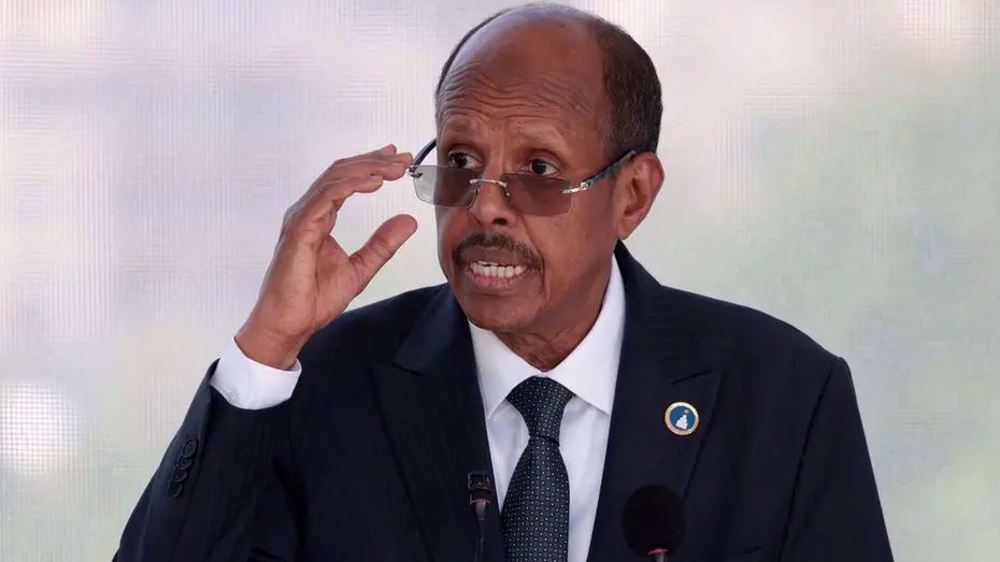Ivory Coast government resigns ahead of cabinet reshuffle
Ivory Coast's President Alassane Ouattara has accepted the resignation of his prime minister and government ahead of an expected cabinet reshuffle.
Accepting the resignation, President Ouattara said on Wednesday that establishment of a new government will lead to more efficiency.
"The establishment of a new government will have better coherence as a goal so the government can be more efficient," Ouattara told reporters in the port city of Abidjan, adding, "We have started a new mandate that must mark a new departure in the direction of state affairs."
Ivorian Prime Minister Daniel Kablan Duncan and government resigned in the early hours of Wednesday.
Meanwhile, spokesman Bruno Kone has said that the new government will be announced next week.
The developments come two months after Ouattara was elected for a second five-year term in late October last year following a landslide victory.

Ouattara, a former senior official at the International Monetary Fund, is seen as the architect of Ivory Coast’s recent economic success, five years after a civil war that killed thousands.
The months-long conflict was sparked following the refusal of the then-president Laurent Gbagbo to step aside after being defeated by Ouattara.
Ivory Coast is the world's top cocoa grower. However, many of its people complain that they have not shared in wealth generated by economic growth rates of around 9 percent in each of the past three years.
About 3,000 people died in the violence following the 2010 presidential election, when former president refused to accept Ouattara's victory. The conflict ended after Ouattara came to power in 2011.
The conflict followed a decade of turmoil in the world’s largest cocoa producer and divided the country between royalists in the south and rebels in the north.
Gbagbo was arrested in 2011 after troops stormed a bunker following a military assault on his residence in the capital, Abidjan. He will stand trial at the International Criminal Court next month for war crimes. He has denied the charges.
Democrats press Trump to explain rationale behind new Iran strike amid warnings about dire risks
VIDEO | Press TV's news headlines
VIDEO | Ex-UK envoy to US arrested by British police
Department of Justice withholds, removes Epstein files that reference Trump: Probe
FM says historic opportunity at hand for unprecedented deal; vows Iran will defend sovereignty
Aid groups challenge Israeli ban that could starve Gaza, West Bank
Hamas denounces Israel’s threats to destroy resistance, slams ceasefire violations
Lebanese army orders troops to return fire after Israeli attack near border post















 This makes it easy to access the Press TV website
This makes it easy to access the Press TV website